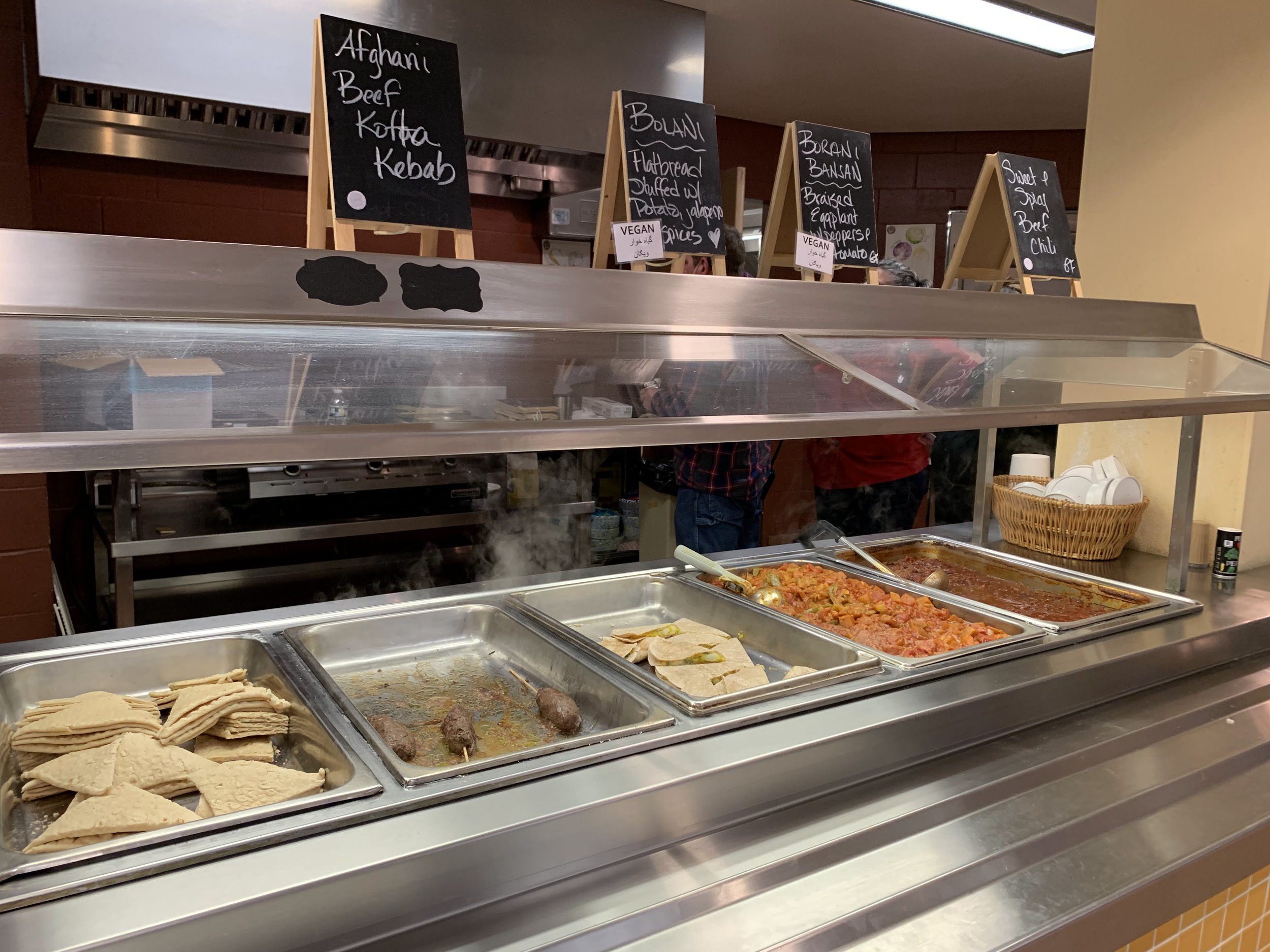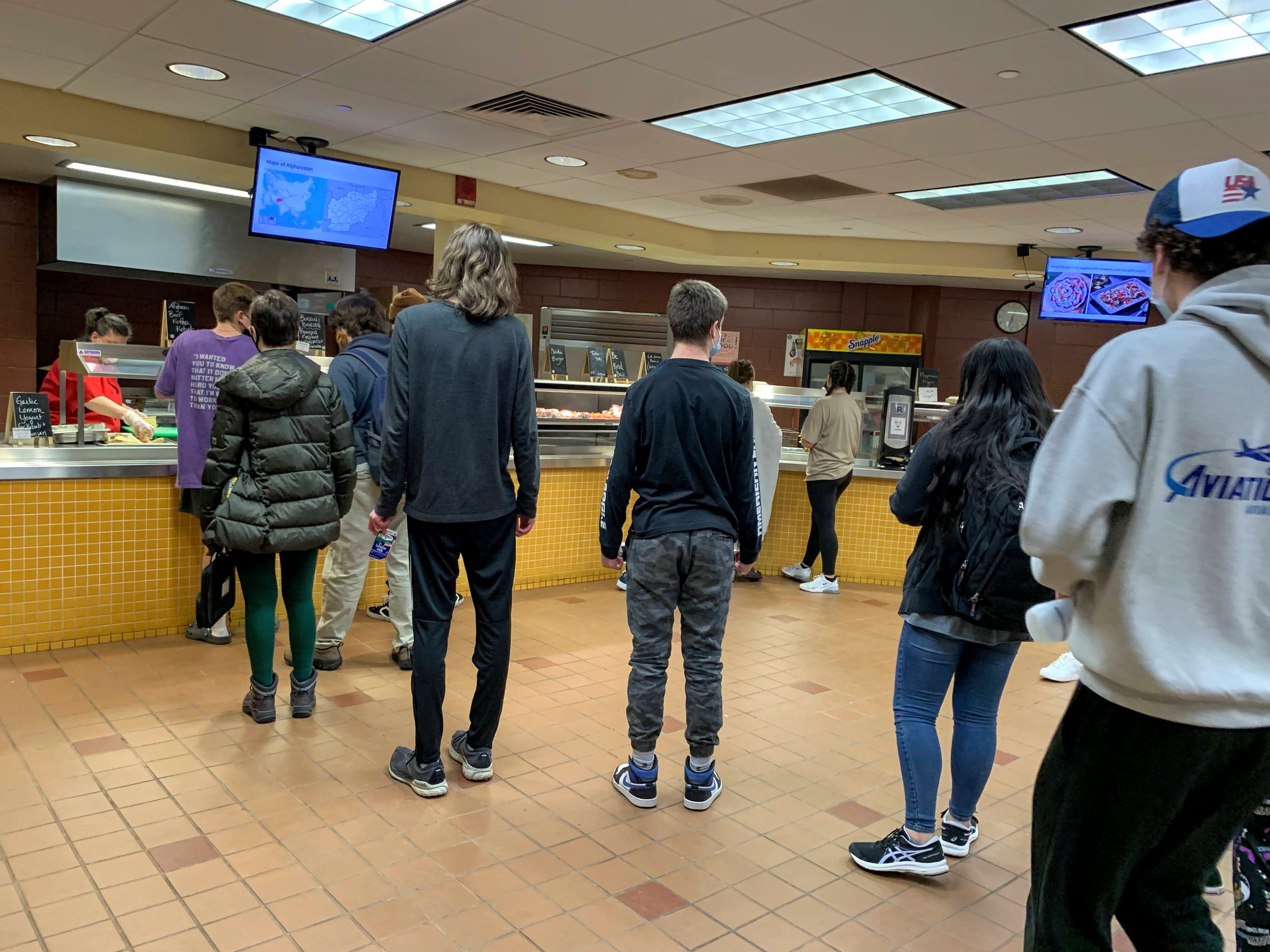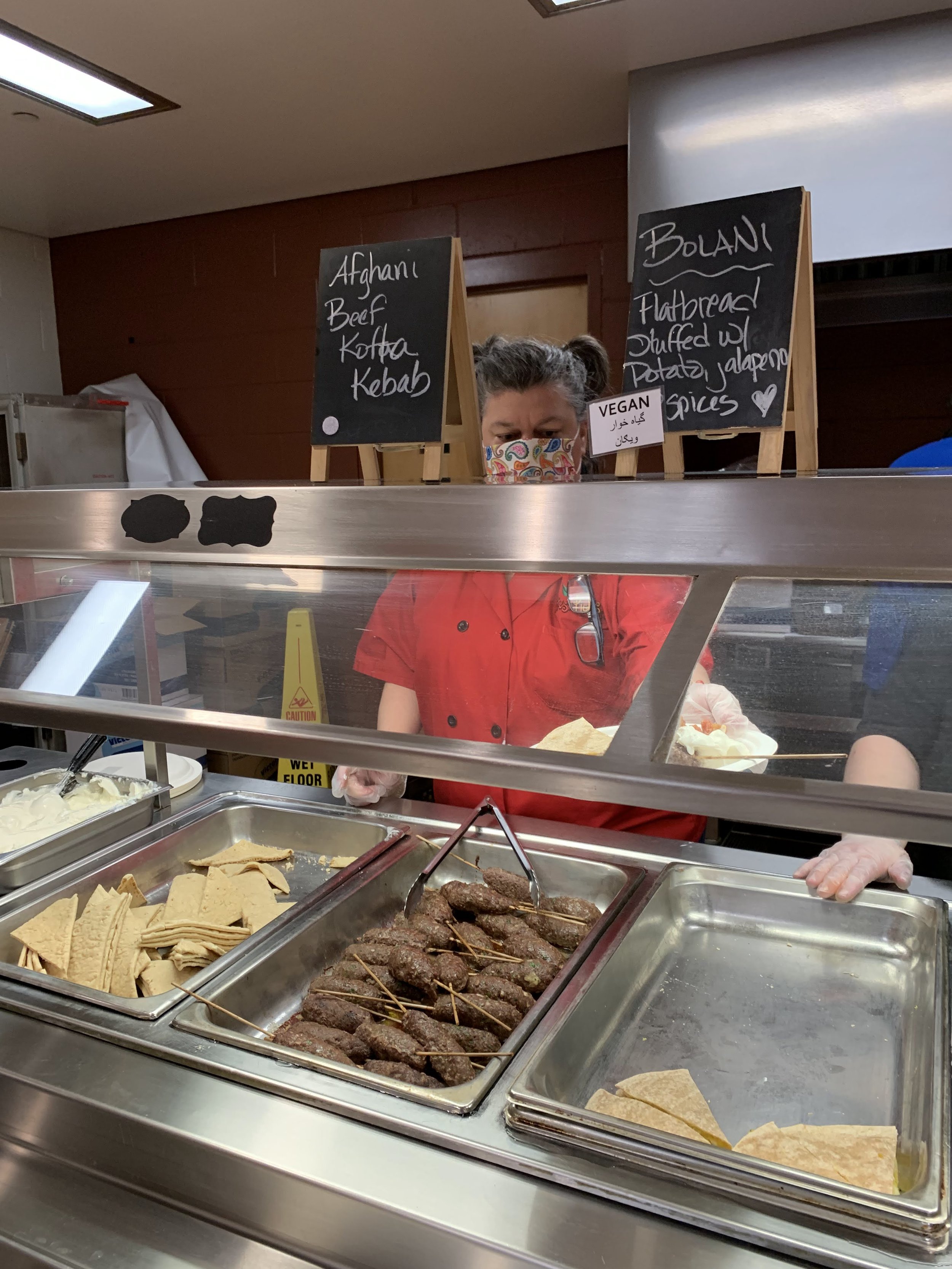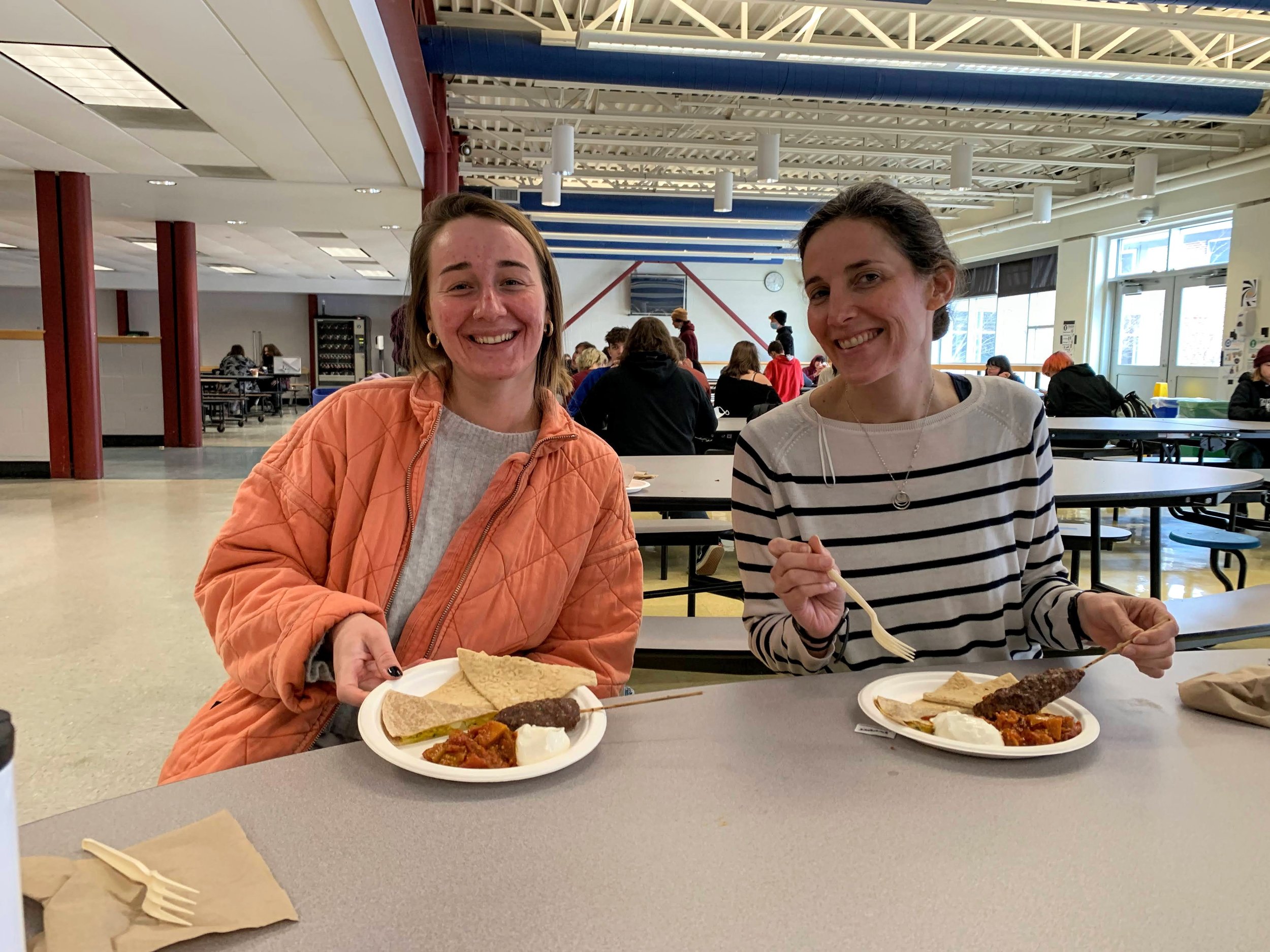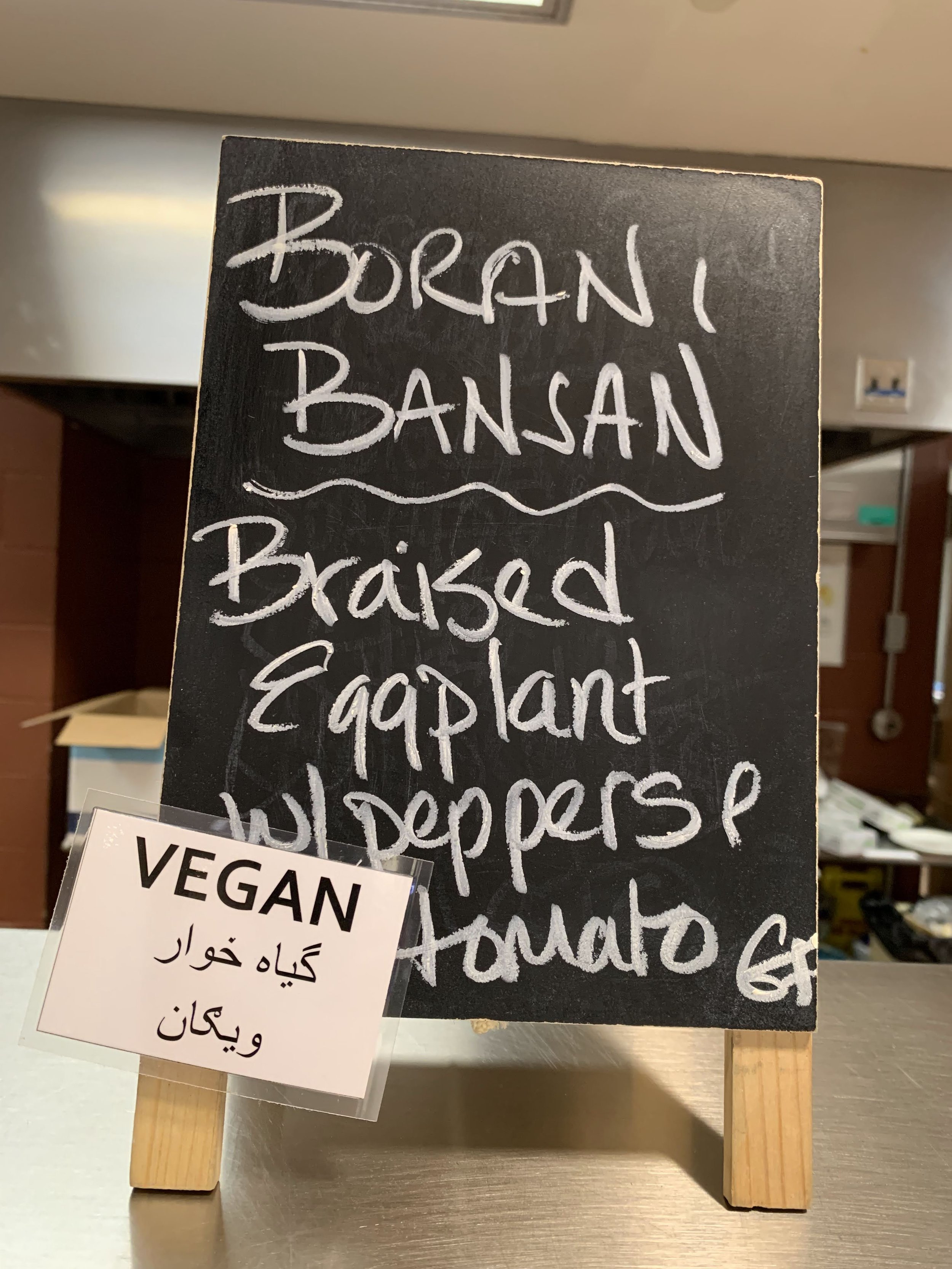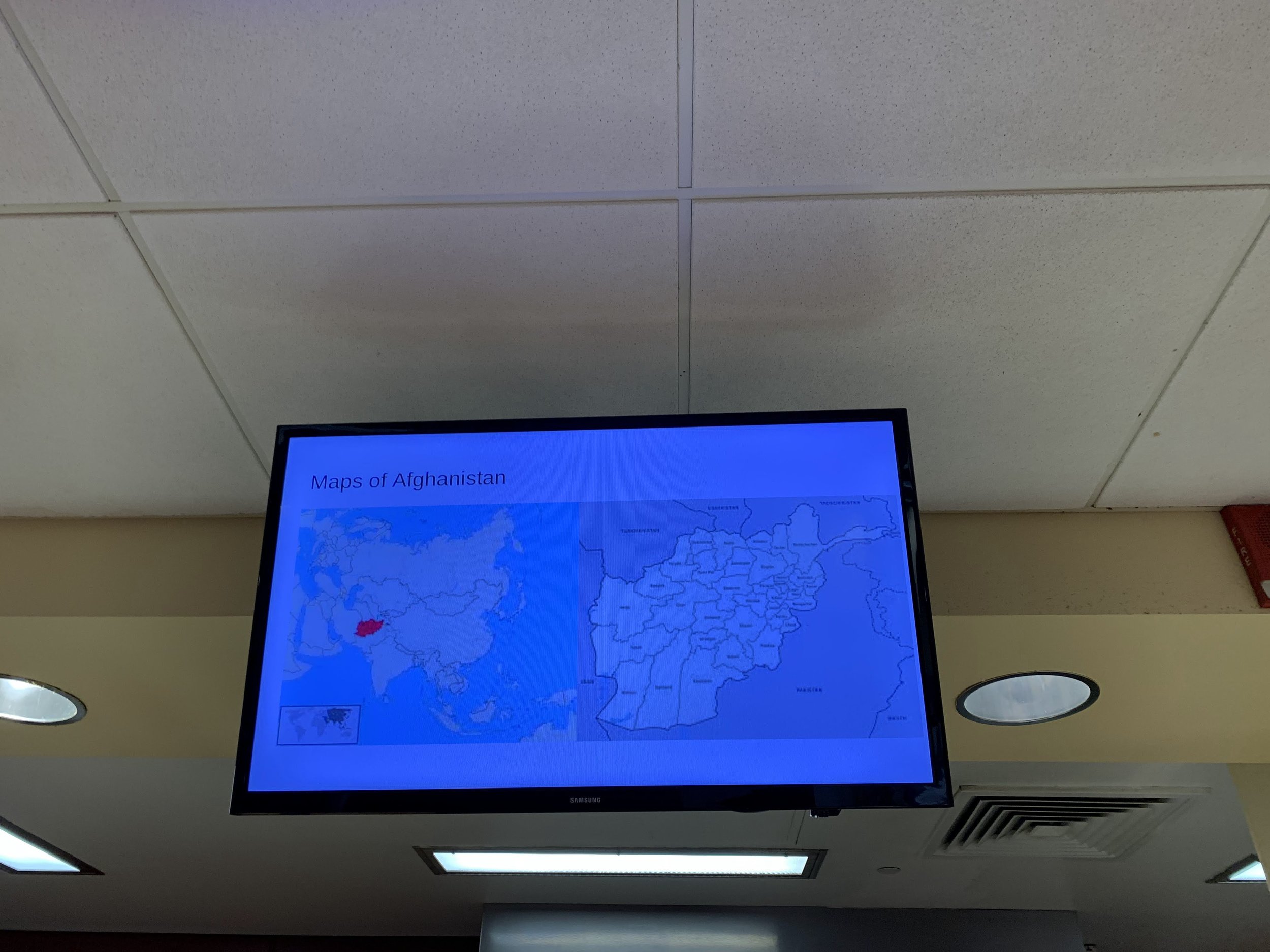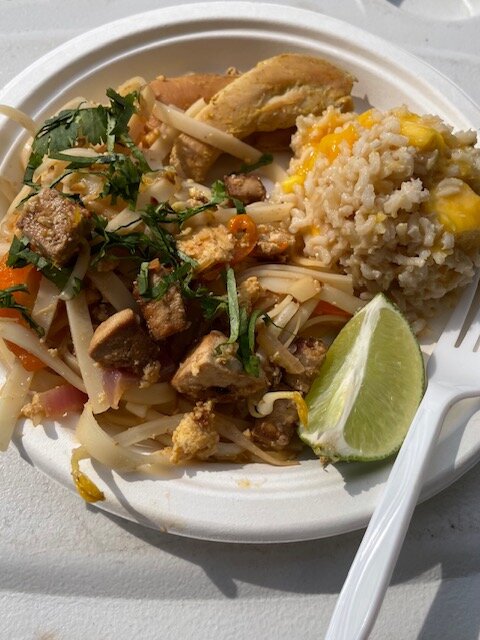Two local Farm to School champions were honored this year by the School Nutrition Association of Vermont and Hunger Free Vermont—Ali West and Harley Sterling!
The Outstanding Achievement Award for “Directors or Managers whose efforts exemplify positive attitudes, creativity, and expertise regarding the challenge of providing nutrition services to Vermont students, especially in times of elevated standards, fewer resources, and recently, a pandemic” went to Ali West, Brattleboro Regional Food Service Director for Windham Southeast Supervisory Union (WSESU).
The Innovation and Advocacy Award for “any school nutrition employee who has taken an idea, developed it into a goal, and carried out a specific project to help their program expand student access to quality school, afterschool, and/or summer meals as well as elevate their community’s image of school meals and school nutrition personnel,” went to Harley Sterling, Food Service Director for Windham Northeast Supervisory Union (WNESU).
A summary of both nominations follows. Congratulations, and thank you, Ali and Harley!
Ali West
Ali West is an incredible asset to Windham Southeast Supervisory Union (WSESU). She has worked tirelessly during the pandemic to ensure that all students in our community are well-nourished. In March of 2020, she pivoted her entire operation and sent meals home to students within three days of school closures. She managed teams of volunteers in her kitchen throughout the spring of 2020, creating efficient systems for getting students fed at home daily. Ali maintained a positive attitude throughout all the challenges that presented themselves during the pandemic, from staffing shortages to supply chain issues, finding creative ways to solve numerous seemingly impossible problems.
Ali is committed to serving high-quality, nutritious food to students and staff. During her five-year tenure, the food quality has increased enormously, prioritizing purchasing local food whenever possible given her tight budget and a shift to scratch cooking. Ali tries out bold new recipes on her menus, such as French lentil soup with fennel, carrots, onions, and thyme and Asian chicken salad with crispy veggies, mixed greens, and a sesame ginger dressing. Her menus always feature a vegan option. For example, when hot lunch is a tuna melt, she also makes a chickpea “tuna” melt. Meal participation among students and staff has increased dramatically. For example, staffing changes have allowed her to become much more hands-on with managing the BUHS kitchen during the 2021-2022 school year. As a direct result of the changes she has made to improve the food quality and the menu, staff participation has increased by 20%, and student participation has increased by 25% this school year alone.
Ali cares deeply about all students, and she is committed to equity in her work. She strives to make all students feel welcome, no matter where they are from, and that desire inspired her to create the Where in the World are We Eating Program, a monthly program where the entire school community celebrates diversity through their taste buds. Ali collaborated with teachers of English Language Learners in the district to compile a list of the 22 different countries students are from. Each month, cuisine from a different country from this list is featured on the menu, and Ali also encourages the entire school community to get involved by learning about the featured country in their art, music, library, and social studies classes.
Ali recently embarked on a new journey, nourishing a group of Afghan refugee families who moved to the Brattleboro area. She is committed to welcoming them with warmth and care through what she does best, food! She has all pork items in the cafeteria marked haram so that these students know which food to avoid to honor their cultural traditions. She has also translated her menus into Dari to make them accessible to these newest students.
Harley Sterling
Harley Sterling is laser-focused on one goal—feeding kids the best quality food possible. And when Harley has a goal, he makes it happen. Throughout 2021, we’ve seen Harley feed more students than ever before, increase his already impressive local purchasing, reimagine how school meals can be used to feed families, and continue to value and champion his staff.
In the fall of 2020, students were back in school, but Harley knew families were still greatly struggling from the pandemic and its ramifications. He and his team worked hard to feed students nutritious and delicious meals every day, as he has done for years. But he wanted to do more. Over the Thanksgiving break of 2020, the food service team offered the first “meal boxes” to the community, modeling the idea off of a program the Burlington School Food Project had undertaken. Anyone in the community who had a child could pick up a meal box, which included enough groceries for 2-3 meals a day (depending on the time of year), seven days a week, for one child. Boxes were filled per child—so if a family had five children, they could take five boxes. Each box contained fresh fruits and vegetables, whole grains, milk, and packaged foods and recipe ideas for meals using the boxed ingredients. On top of all this, Sterling purchased as much local food as possible. Think Bread Shed bread, Miller Farm milk, and Vermont grass-fed beef and produce. This amounted to Sterling’s program spending over $100,000 on local purchases from Food Connects, his local food distributor, for meal boxes alone.
The first two meal box distributions were a roaring success, with over 700 boxes going home with families over the December break. Sterling and his team knew then they were meeting an essential need in the community and vowed to continue making food available to families in whatever ways possible. The team offered boxes over the February and April vacations and made a plan to continue this service throughout the summer.
During the summer of 2021, Harley and his team sent hundreds of meal boxes home every week—averaging around 500 boxes/week., They also continued to feed children who were participating in summer programming at the schools in WNESU. In addition, Sterling secured a contract to feed the children in Keene summer programs. This meant that approximately 500 additional students a day were being fed scratch-cooked meals with a large portion of fresh and local ingredients. ISterling and his team were serving roughly 2000 meals per day throughout the summer of 2021.
Why would Windham Northeast District be feeding students in Keene? This is where Harley’s exceptional innovation, leadership, and passion combine to allow him to identify and capitalize on opportunities—which leads to benefits not just for students but also for his team, local farmers and producers, and the community. Sterling believes strongly in his team and even more strongly in rewarding and elevating them. He offers his staff some of the highest kitchen wages in Vermont, alongside great benefits. One staff member reflected “I’ve never made more money in a restaurant. This is the best paying kitchen job I’ve ever had, and I’ve had many.” Harley doesn’t decline requests for time off. Once a staff member is trained, they are trusted and given a lot of autonomy. He is serious about elevating the community’s image of school nutrition personnel. Sterling is trying to inspire a new movement that he believes is just beginning—a movement to transform school food. Sterling explained, “It starts with taking care of people. Paying them. Giving them great benefits. And elevating them so that people see them and value them for what they are: badass chefs.” He hopes this will motivate others to join the effort.
How can Sterling pay more than “any other kitchen job?” By being innovative, creative, determined, and extremely hard-working. By contracting with the Keene summer program, he nourished more students with high-quality food andsecured more funding to pay respectable wages and pay for high-quality ingredients.
Food Connects is honored to work with Harley, and we are inspired by his work. Many school food professionals are doing amazing work in Vermont. But his steps towards increasing access to high-quality food, decreasing stigma, and elevating his team prove he is an exceptional innovator and a true School Nutrition Hero.








